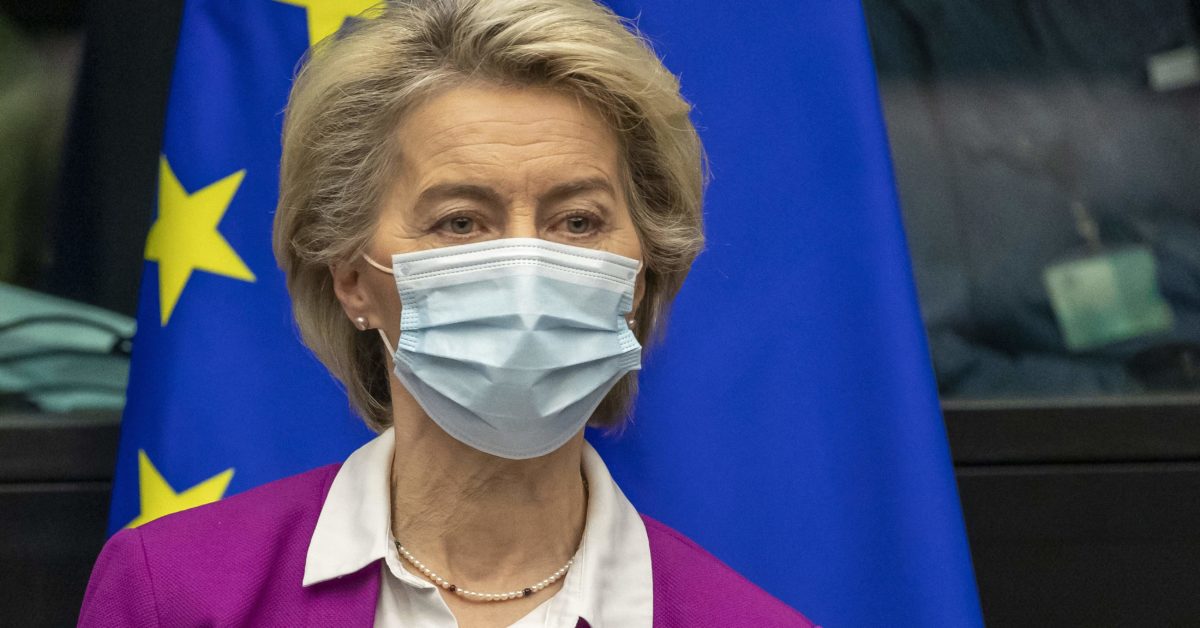European countries moved Friday to restrict Southern Africa travel, citing concerns over a recently identified coronavirus variant — which has now been detected in Belgium.
That follows a call by European Commission President Ursula von der Leyen Friday morning for the bloc to trigger an emergency brake to stop air travel from the region.
EU countries should act “very swiftly, decisively and united,” von der Leyen said in a statement Friday afternoon. “All air travel to these countries should be suspended until we have a clear understanding about the danger posed about this new variant and travelers returning from these regions should respect strict quarantine rules,” she added.
The emergency brake mechanism allows EU countries to halt travel — including for vaccinated people — if the epidemiological situation in a non-EU country goes downhill due to a concerning variant.
However, in a sign that travel bans may prove futile, Belgium has already confirmed one case of the new variant.
A meeting of the EU’s integrated political crisis response — a tool for EU countries to coordinate during crises — was called Friday afternoon to discuss the emergence of the variant and help coordinate responses.
But it’s up to individual EU countries to impose flight bans.
Germany, France, Italy, the Netherlands, Austria, Belgium, Spain, Malta and the Czech Republic have already announced travel restrictions to the region. That follows Thursday night’s decision by U.K. authorities to introduce new curbs on travel for six African countries, including South Africa.
German Health Minister Jens Spahn said that from Friday night, “airlines are only allowed to transport Germans to Germany, moreover a 14-day quarantine is mandatory for everyone, including the vaccinated.”
The Netherlands has also implemented a ban on flights from the region from noon Friday — a move that’s trapped passengers on two planes from South Africa at Schiphol airport in Amsterdam until they’re tested.
“While my flight from Jo’burg was somewhere over Chad, Europe went into variant panic; by the time we landed, we weren’t allowed off the plane,” tweeted Stephanie Nolen, a global health reporter at the New York Times.
Africa’s Centres for Disease Control and Prevention said it “strongly discourages” travel bans on visitors arriving from the countries that had reported the variant. As of Thursday it had detected 77 cases in South Africa, 4 in Botswana and 1 in Hong Kong.
Most of the cases are in Southern Africa, where the density of mutations on the new variant — expected to renamed “Nu” — has raised fears it may be more contagious and better at evading vaccine immunity than previous variants.
Tulio de Oliveira, director of South Africa’s Centre for Epidemic Response and Innovation, estimates that at least 1,000 new COVID-19 cases a day in the country belong to the “Nu” variant, as it outstrips the previously dominant Delta variant.
A travel ban will hopefully slow the variant’s advance, but is unlikely to stop it entirely, Marc Van Ranst, a Belgian virologist said, adding: “The sober fact is that this variant is probably already present in Europe to a very limited extent.”
Israel’s health ministry announced Friday that it had detected three suspected cases of the variant in the country. The prime minister’s office said it too will ban travel from most of Africa.
For now at least, there were no cases of the variant in the U.K., said British Health Secretary Sajid Javid speaking to parliament on Friday.
Jenny Harries, chief executive of the U.K. Health Security Agency called it the “most significant variant” encountered to date.
Lukas Kotkamp, Cornelius Hirsch and Sarah Wheaton contributed reporting.
This story has been updated.



















